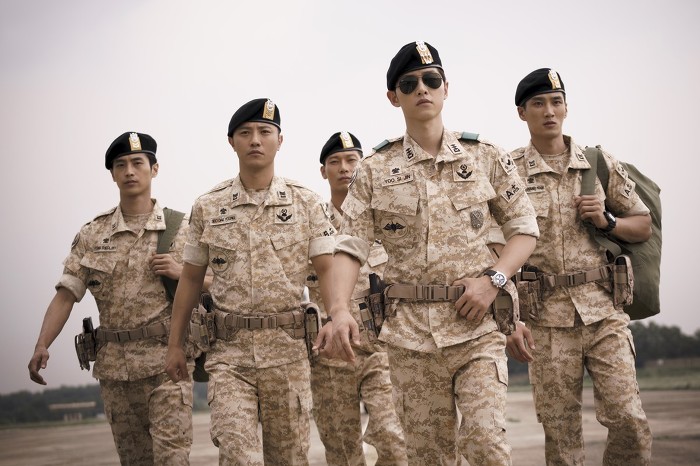
Every November, 12th grade South Korean students who attend schools in Korea take perhaps the most important test of their lives, the 수능 (College Scholastic Ability Test), comparable to Chinese public schools’ 高考 and AISG’s IB May exams. After these tests are over, students who have become extricated from stress live their last two months as high school students (In Korea, a grade ends in December). However, for male students, their joy quickly dissipates as they come back home and find a letter in their mailbox.

AISG’s Korean male seniors born in 1999 have also begun to receive this “special letter” from the Korean government: the conscription letter. Beginning from January 3, 2018, 18 year-old Korean males are required to go to the military administration office for a physical examination; this exam will determine whether one is eligible to serve in the military and will also decide which troop one will serve in.
The lives of South Korean male students after graduating high school differ substantially from those of other male students living in the rest of the world. As the male students complete their freshman year in university, they are constantly summoned by the government to receive preliminary trainings for their imminent military service. And finally, before they begin their sophomore year, they apply for a leave of absence in school to serve in their designated troops for 18-24 months.
This rigid system has existed since the end of Korean War, and currently, many citizens believe there is an inherent injustice and flaw in the system. First, men have to sacrifice too many things while serving in the military. The precious two years which they could have spent studying, gaining experience for their careers, and earning money are used in “proudly protecting their country”.
Second, the amount of support they receive from the society is limited. After men finish their service and return to their original lives, many find difficultly in assimilating to the environment. They lack financial stability. They lack experience. Yet, the government neither supports them nor do other people acknowledge the invisible obstacles which men must overcome.
While men return from the military and continue as sophomores, women who began their freshmen year together with those men have already become seniors. This situation often leads to 22-year-old women standing miles away from 22-year-old men in knowledge, job experience, and financial stability. Nonetheless, there are no special advantages or merits for men who have spent their valuable early 20’s in a secluded society.
Minseok Choi, currently a senior at AISG, will be going to the army within 2 years. He says, “Although going to the army is an honorable duty, forcing every male to go to the army during university is extremely unfair. Staying in the army for two years in the middle of university deteriorates a student’s ability since one does not have the time to study in the army. Therefore, when male students return, they have forgotten many things, resulting in the students’ lack of ability to attain knowledge.”
Choi further commented about the difficult climate which men need to adapt in when they return from the army. “People’s views on the soldiers and those who came back from their services are negative and contemptuous. After male students finish their service and return to university, they are isolated due to the fact that they do not know many people from their grade. To make matters worse, other students do not even attempt to approach them which results in suffering psychological illnesses and feeling betrayed.”
He concluded by hoping for the system to change. “As a person who will be heading to the army in 2 years, I believe that this ridiculous treatment towards soldiers and post-soldiers should be amended.”
However, it turned out that not all Korean men despise their military service. A former student of Ms. Barga, Yongmin Cho, who currently attends Princeton University, is in favor of maintaining the current system. He said that mandatory military service is better than voluntary service since requiring all men to serve “[provides] civic education and [increases] patriotism.”
He even claimed that “the government should apply more physical training and military drills to the men in service [since] by the end of the 21 month period, many actually get lazy.” He also suggested that the government should send women to military service, just like Israel. Israel is one of the four countries in the world (others being North Korea, Norway, and Bolivia) which drafts both men and women for mandatory military service. He concluded, “Women are as determined as men. [They] can accomplish as much as men.”
Regardless of whether men like doing their service or not, Korean men’s military service has become a part of the Korean culture. For men who must complete their service, the government should at least give more support to those men who have lost their opportunities to study and gain work experience during their early twenties. After protecting their own country for 2 years, what they receive afterwards is not respect and gratitude, but instead, isolation and ignominy. To change this, both the government and the people must warmly welcome the men who have just sacrificed two valuable years of their adulthood.
For more information, please visit entitymag.com.
One thought on “Korean Military Service: Unjust Call of Duty”
Sorry, comments are closed.